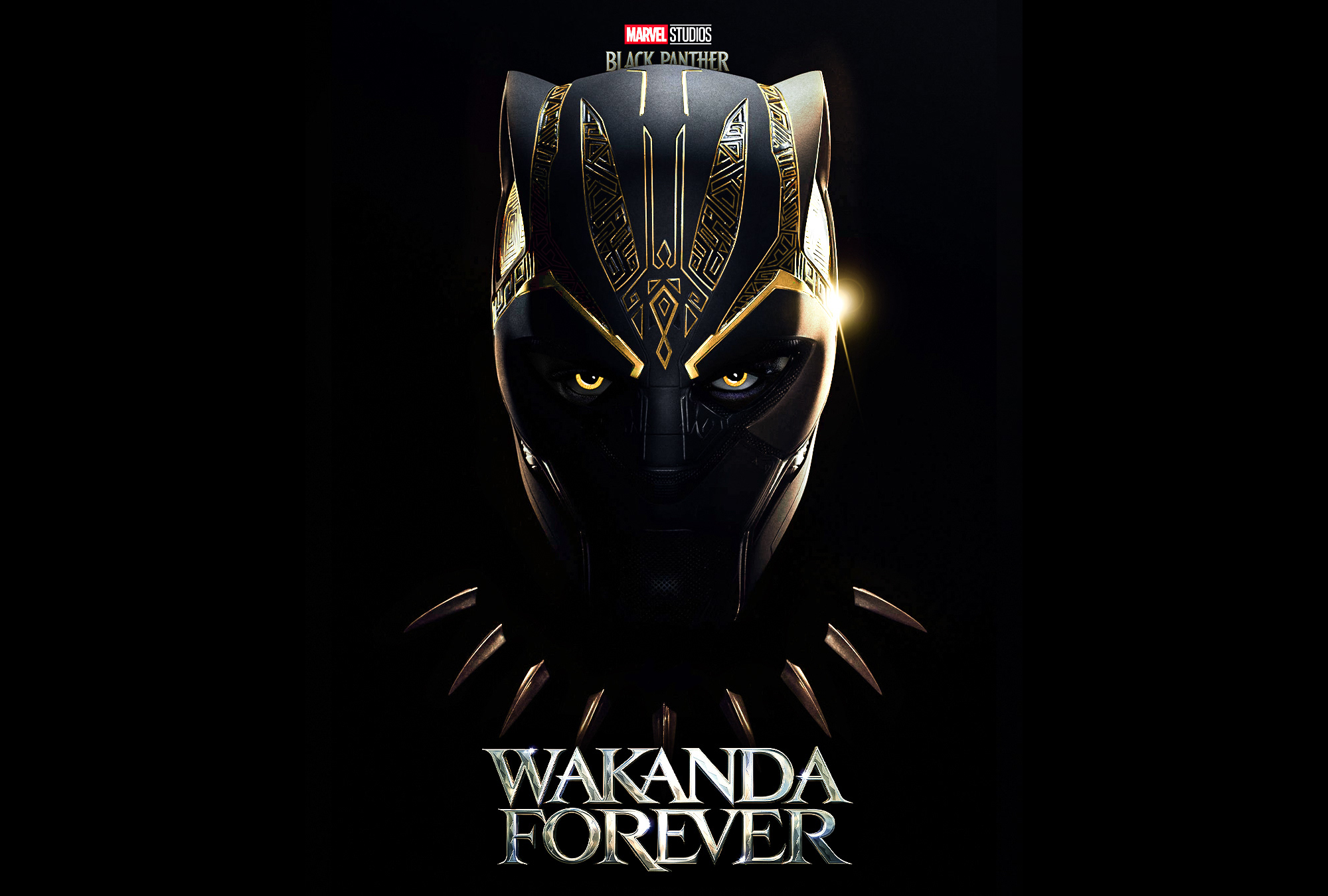BLACK PANTHER: WAKANDA FOREVER is directed by Ryan Coogler. The film stars Letitia Wright, Lupita Nyongo, Danai Gurira, Winston Duke, Dominique Thorne, Florence Kasumba, Michaela Coel, Tenoch Huerta, Martin Freeman, and Angela Bassett. It’s the 30th film in the Marvel Cinematic Universe.
T’Challa, Black Panther and King of Wakanda, has passed away. The people of the African kingdom try to move on with their lives, dealing with their sorrows in their own ways, as disarray in the kingdom causes chaos and the outside world wants nothing more than to get their hands on vibranium, the rare metal found only in Wakanda. Shuri, sister of the deceased Black Panther, finds herself conflicted with an underwater race under the command of the mutant Namor wants an alliance with Wakanda against other nations who may declare war, but differences in opinions and goals in the world lead to a battle between the two kingdoms, in which old allies and followers of T’Challa must fight for what they believe in, to preserve their way of life.
WAKANDA FOREVER is not a short film, approaching the three-hour mark with director Ryan Coogler (returning from the first BLACK PANTHER film) throwing in everything but the kitchen sink to create a new epic for the Marvel Cinematic Universe, which has been facing an uneven Phase Four following the conclusion of the former Infinity Saga. Coogler had an immense challenge before him, having to make a BLACK PANTHER film with Chadwick Boseman having passed away at an all-too-young age. WAKANDA FOREVER mostly succeeds, serving as a tribute to Boseman while at the same time standing as a strong story and one of the best MCU movies in years. It falters in a few areas, namely an overindulgence of subplots and characters and the overlong running time that comes with these aspects, but there are more hits and misses in this epic film.
Characterization is one of the strengths of WAKANDA FOREVER, with the strongest performances coming from Letitia Wright as Shuri, and Angela Bassett as Ramonda, the late T’Challa’s sister and mother, respectively. Both struggle with the loss of their family member and leader of their kingdom in their own way, and seeing how they deal with it while facing the inevitable challenges that follow make for some great scenes throughout the movie. In WAKANDA FOREVER, action takes a backseat to drama, but as sequences like this prove, that isn’t a bad thing. And don’t worry, if you’re coming for the action; there’s plenty of that too. In particular, it’s great to see Shuri as a fully-realized character and not just one that’s largely being utilized for moments of comic relief, as she was in the first BLACK PANTHER.
It wouldn’t be an MCU movie without a villain. Bad guys are one of the few areas where the MCU has been a hit-and-miss affair, but I’m happy to announce that WAKANDA FORVER doesn’t disappoint with the arrival of one of Marvel’s oldest characters on the big screen for the first time, Namor the Sub-Mariner, here portrayed by actor Tenoch Huerta. In many ways he is a mirror to those trying to rule Wakanda, with his own kingdom and concerns to address and acting in the best interests of his people, even if he may come off as misguided and dangerous despite his good intentions. In many ways he’s similar to Wenwu from SHANG-CHI, and I mean that as an enormous compliment. The scenes he shares with Shuri are among the best in the film, and the two have a great chemistry any time they interact.
The greatest strength of the first BLACK PANTHER film came in the form of its social commentary; this aspect made that movie a hit even with people who don’t normally watch superhero movies. While I do believe the first film was stronger than WAKANDA FOREVER in this regard, largely due to the Killmonger character, the sequel is no slouch, doing a beautiful job looking at a broken nation and still showing repercussions of the previous cinematic effort and the division it created. Even if the second movie can’t quite rival the first when it comes to social commentary, it’s still more cerebral than most of the MCU’s offerings.
The one weakness of WAKANDA FOREVER is that it’s simply “too much” at times. The movie serves to introduce the character of Ironheart, but one can’t help but wonder if she was really needed in this movie, which already had a very full cast and plenty of plot, though I won’t deny that the young lady who plays her, Dominique Thorne, does an absolutely wonderful job, and I do look forward to seeing her in future MCU productions. I just question whether she was needed in this film’s already-overstuffed plot.
The same can be said of Everett Ross, a character who’d previously appeared in a handful of other films in the MCU, including the first BLACK PANTHER. This character is largely tertiary here and feels unnecessary in the grand scheme of things, as is his ex-spouse (a character I won’t spoil here, but you have seen them before in other MCU productions). Cutting these tertiary characters could’ve made for a more streamlined yet no less effective film.
WAKANDA FOREVER, despite a few hiccups, is a worthy entry in the MCU, and its strongest and most cerebral entry in years. For fans of the franchise and action/sci-fi cinema, it comes highly recommended!
BLACK PANTHER WAKANDA FOREVER movie review

